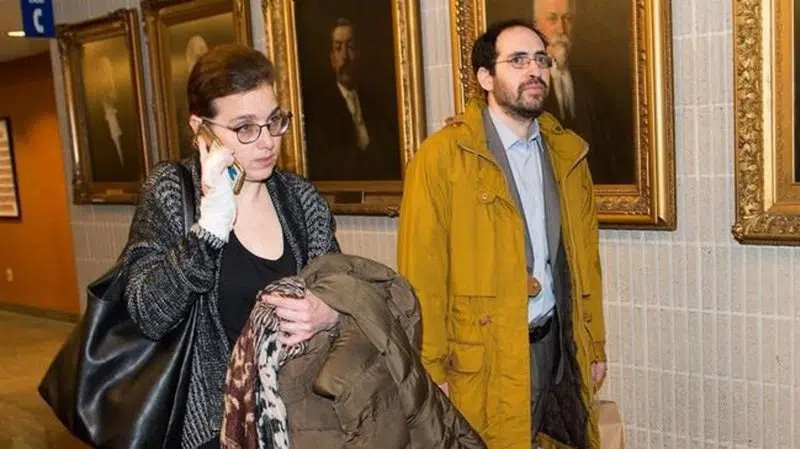
Ex-Hasidic couple take Quebec to court over religious school education
MONTREAL — An ex-Hasidic Jewish couple who were educated in a private religious school graduated without knowing how to speak French and hardly being able to speak English, a lawyer said Monday at the opening of a trial centring on the Quebec government’s responsibility to regulate religious schools.
The couple were in Quebec Superior Court on Monday seeking a judgment against the province, which they accuse of failing to ensure they received an adequate education.
Bruce Johnston, a lawyer representing Yochonon Lowen and Clara Wasserstein, told a Montreal courtroom the couple received almost no secular education while attending a school run by the ultra-orthodox Tash community in Boisbriand, north of Montreal.
According to court documents, the plaintiffs were educated in Yiddish at a religious school that did not hold a permit. They never got a single history, geography, science or art class, while Lowen never attended a French class.

